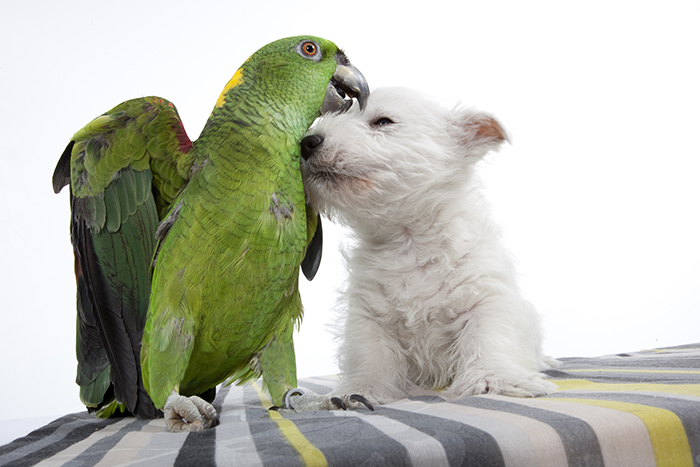Different species can have beautiful friendships.
People love to see animals of different species peaceably interacting with each other. Maybe it’s because it reminds of us of our own friendships with species other than ourselves. Or perhaps it’s just because it seems to defy nature.
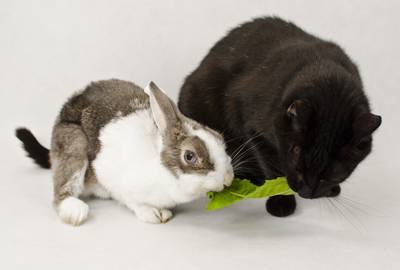
©marketanovakova/Adobe Stock
Whatever the reason we enjoy seeing different kinds of animals forging friendships with each other, the fact is this phenomenon happens all the time. The internet is filled with videos of crows caretaking kittens, dogs tending orphaned fawns and monkeys playing with lion cubs.
If we are lucky, we can see this playing out in our lives with our own pets. It’s most common for cats and dogs sharing the same household to become buddies, even exchanging toys and beds. However, cats and dogs have also been known to make friends with other types of pets too. Dogs and parrots sometimes become buddies, for instance, while and cats and rabbits can make good friends.
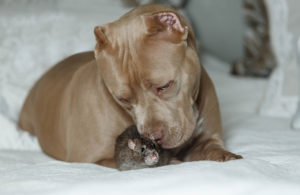
©Владимир Григорьев/Adobe Stock
How do animals of different species become companions? If you watch them interact, you’ll find that they have discovered something they have in common. They might both like to play, and will enjoy chasing each other around. Or they might both enjoy eating the same foods, and will share them with each other. They might both enjoy cuddling up to someone who is warm and fuzzy, and find they can provide this comfort to each other. In most cases, animals who become friends are members of social species who simply enjoy the company of others.
If you have pets of different species that have taken a liking to each other, or you are hoping they will, here are some points to keep in mind.
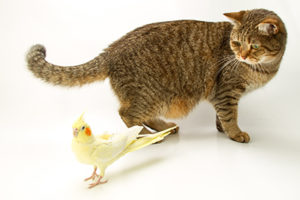
©web2000ra/Adobe Stock
Safety First. In many cases, unusual friendships form between animals who are naturally considered predator and prey. Dogs and cats are both hunters, while other common household pets, such as birds, rodents and reptiles are low on the food chain. When observing a friendship between animals that might consider each other a foe or a victim, keep a close watch to be sure the relationship isn’t turning into something that could be dangerous to the more vulnerable pet.
Read Body Language. It’s important to recognize when one pet is feeling scared or uncomfortable, or becoming too excited or aggressive. Get to know the body language of the species you are dealing with. Don’t mistake aggression for playfulness, or nervousness for excitement. If one of your pets is starting to show signs of stress or pushy behavior, separate the two and reconsider putting them back together again in the future. They may not be able to handle it.
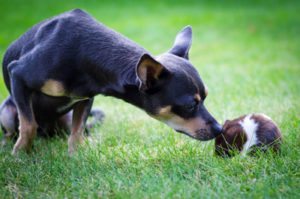
©Piotr Wawrzyniuk/Adobe Stock
Don’t Push It. You might want your dog and bird to be friends, or your cat and your bunny, but never push a friendship onto animals. Forcing them to spend time together in the hopes they will learn to love each other can prove disastrous for the smaller pet. Let friendships form naturally, and always protect the smaller pet if things get rough or scary.
If you’re fortunate enough to have a dog who is good friends with a chicken, or a cat who loves your tortoise, consider yourself very lucky. Enjoy watching these different species interacting with other and finding what is common between them.
About the Author: Audrey Pavia is an award-winning freelance writer and author of “The Labrador Retriever Handbook.” She is a former staff editor of Dog Fancy, Dog World and The AKC Gazette magazines. To learn more about her work, visit www.audreypavia.com and hollywoodhoofbeats.net/



